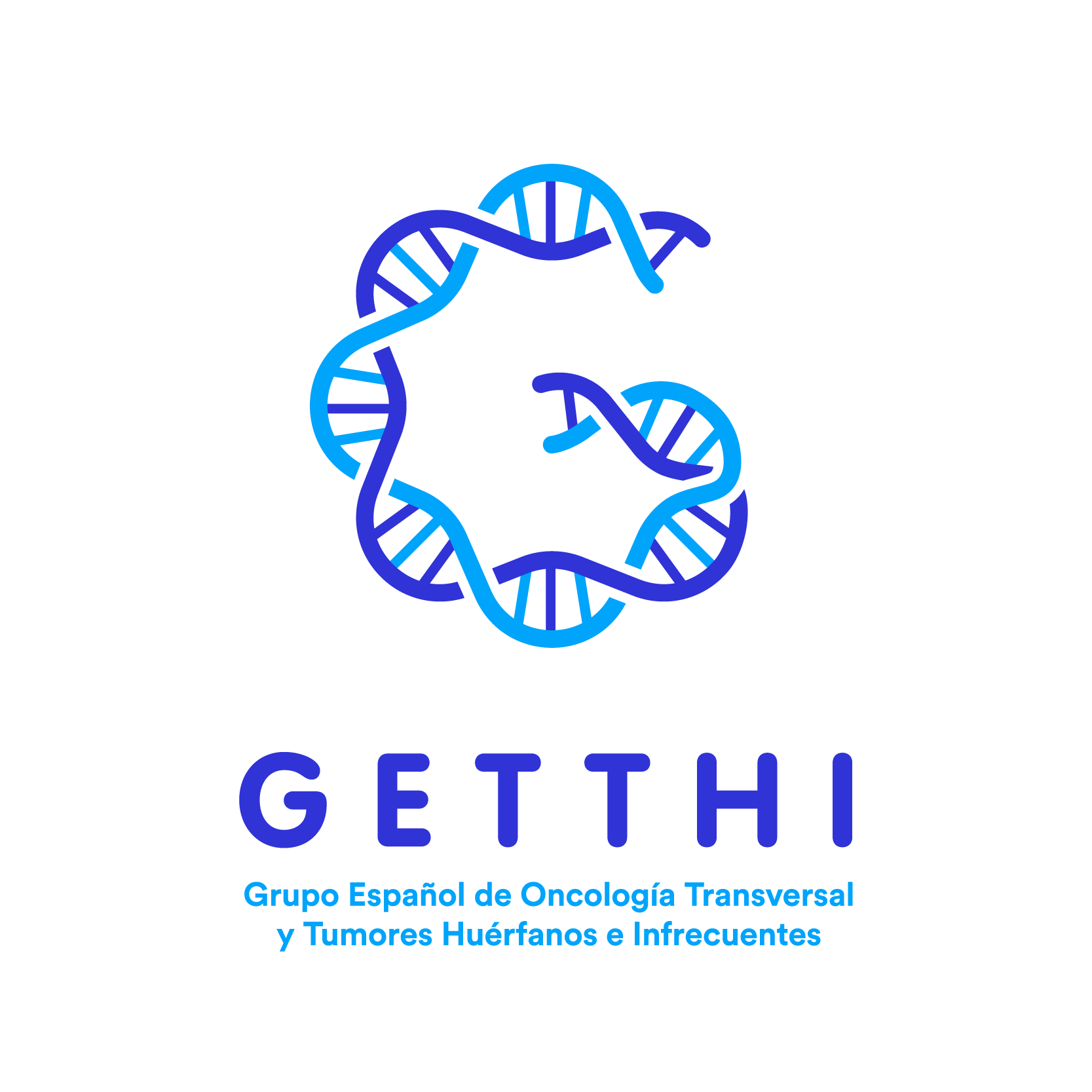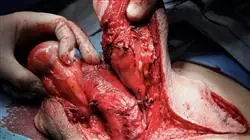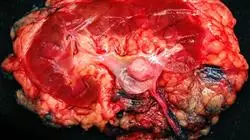University certificate
Scientific endorser

The world's largest faculty of medicine”
Introduction to the Program
Delve into the most important advances in Urologic Oncology through 10 unique masterclasses, provided by one of the world’s leading specialists in this field”

Given that Urologic Oncology is a discipline that encompasses the diagnosis and treatment of such a wide variety of urologic tumors (kidney, adrenal gland, ureter, bladder, prostate, urethra, penis, testicle...), it is to be expected that the advances in this field are not only relevant, but also substantial. Therefore, Urologic Oncology is positioned as an essential part of Urology and one of the main fields of the specialty and is closely related to Medical Oncology and Radiation Oncology. Laparoscopic Surgery, on the other hand, has become widespread and is nowadays considered the standard approach for most urologic tumors.
TECH has created this program precisely to cover the most important novelties in the area of Urologic Oncology. All the content has been written not only from a theoretical perspective, but also from a practical one, as numerous simulated cases and real examples are included throughout the syllabus. In fact, the specialist will find 10 masterclasses made specifically for this program, in which one of the most renowned experts in the field covers all the intricacies of the topics covered in this Professional master’s degree.
A wide range of surgeries are covered throughout the syllabus, such as removal of all or part of the kidney due to cancer or benign diseases, removal of very large and complex kidney stones, reconstruction of ureteral narrowing, removal of retroperitoneal tumors, oncological and reconstructive surgery of the bladder, prostate surgery for benign diseases or cancer, treatment of urinary incontinence, removal of malignant testicular tumors, andrological surgery (testicular biopsy, penile prosthesis, etc.), among others.
The 100% online format, without in-person classes and fixed schedules, allows this program to be adapted to all kinds of schedules and responsibilities. The Virtual Campus is available 24 hours a day and can be accessed from any device with an Internet connection. Furthermore, all the content can be downloaded, so that you can manage the course workload from a smartphone, tablet or computer of your choice, whenever and however you want.
You will benefit from the practical vision of one of the most prestigious hospital environments in the field of Urologic Oncology, delving into the specificities of urologic tumor pathologies with 10 masterclasses”
This Professional master’s degree in Urologic Oncology contains the most complete and up-to-date scientific program on the market. The most important features include:
- More than 75 clinical cases presented by Urologic Oncology experts. The graphic, schematic, and practical contents with which they are created provide scientific and practical information on the disciplines that are essential for professional practice
- Diagnostic-therapeutic developments on assessment, diagnosis, and treatment in Urologic Oncology
- Contains practical exercises where the self-evaluation process can be carried out to improve learning
- Iconography of clinical and diagnostic image tests
- An algorithm-based interactive learning system for decision-making in the clinical situations presented throughout the course
- With special emphasis on evidence-based medicine and research methodologies in Urologic Oncology
- All of this will be complemented by theoretical lessons, questions to the expert, debate forums on controversial topics, and individual reflection assignments
- Content that is accessible from any fixed or portable device with an Internet connection
This Professional master’s degree may be the best investment you can make when selecting a refresher program for two reasons: in addition to updating your knowledge in Urologic Oncology, you will obtain a qualification from TECH Global University"
The teaching staff includes professionals from the field of urologic oncology, who contribute their experience to this academic program, as well as renowned specialists from leading scientific societies.
The multimedia content developed with the latest educational technology will provide the professional with situated and contextual learning, i.e., a simulated environment that will provide immersive training program to train in real situations.
This program is designed around Problem-Based Learning, whereby the physician must try to solve the different professional practice situations that arise during the course. For this purpose, the physician will be assisted by an innovative interactive video system created by renowned and experienced experts in the field of Urologic Oncology with extensive teaching experience.
Increase your decision-making confidence by updating your knowledge through this Professional master’s degree"

Make the most of the opportunity to learn about the latest advances in Urologic Oncology and improve your patient care"
Why study at TECH?
TECH is the world’s largest online university. With an impressive catalog of more than 14,000 university programs available in 11 languages, it is positioned as a leader in employability, with a 99% job placement rate. In addition, it relies on an enormous faculty of more than 6,000 professors of the highest international renown.

Study at the world's largest online university and guarantee your professional success. The future starts at TECH”
The world’s best online university according to FORBES
The prestigious Forbes magazine, specialized in business and finance, has highlighted TECH as “the world's best online university” This is what they have recently stated in an article in their digital edition in which they echo the success story of this institution, “thanks to the academic offer it provides, the selection of its teaching staff, and an innovative learning method aimed at educating the professionals of the future”
A revolutionary study method, a cutting-edge faculty and a practical focus: the key to TECH's success.
The most complete study plans on the university scene
TECH offers the most complete study plans on the university scene, with syllabuses that cover fundamental concepts and, at the same time, the main scientific advances in their specific scientific areas. In addition, these programs are continuously being updated to guarantee students the academic vanguard and the most in-demand professional skills. In this way, the university's qualifications provide its graduates with a significant advantage to propel their careers to success.
TECH offers the most comprehensive and intensive study plans on the current university scene.
A world-class teaching staff
TECH's teaching staff is made up of more than 6,000 professors with the highest international recognition. Professors, researchers and top executives of multinational companies, including Isaiah Covington, performance coach of the Boston Celtics; Magda Romanska, principal investigator at Harvard MetaLAB; Ignacio Wistumba, chairman of the department of translational molecular pathology at MD Anderson Cancer Center; and D.W. Pine, creative director of TIME magazine, among others.
Internationally renowned experts, specialized in different branches of Health, Technology, Communication and Business, form part of the TECH faculty.
A unique learning method
TECH is the first university to use Relearning in all its programs. It is the best online learning methodology, accredited with international teaching quality certifications, provided by prestigious educational agencies. In addition, this disruptive educational model is complemented with the “Case Method”, thereby setting up a unique online teaching strategy. Innovative teaching resources are also implemented, including detailed videos, infographics and interactive summaries.
TECH combines Relearning and the Case Method in all its university programs to guarantee excellent theoretical and practical learning, studying whenever and wherever you want.
The world's largest online university
TECH is the world’s largest online university. We are the largest educational institution, with the best and widest online educational catalog, one hundred percent online and covering the vast majority of areas of knowledge. We offer a large selection of our own degrees and accredited online undergraduate and postgraduate degrees. In total, more than 14,000 university degrees, in eleven different languages, make us the largest educational largest in the world.
TECH has the world's most extensive catalog of academic and official programs, available in more than 11 languages.
Google Premier Partner
The American technology giant has awarded TECH the Google Google Premier Partner badge. This award, which is only available to 3% of the world's companies, highlights the efficient, flexible and tailored experience that this university provides to students. The recognition as a Google Premier Partner not only accredits the maximum rigor, performance and investment in TECH's digital infrastructures, but also places this university as one of the world's leading technology companies.
Google has positioned TECH in the top 3% of the world's most important technology companies by awarding it its Google Premier Partner badge.
The official online university of the NBA
TECH is the official online university of the NBA. Thanks to our agreement with the biggest league in basketball, we offer our students exclusive university programs, as well as a wide variety of educational resources focused on the business of the league and other areas of the sports industry. Each program is made up of a uniquely designed syllabus and features exceptional guest hosts: professionals with a distinguished sports background who will offer their expertise on the most relevant topics.
TECH has been selected by the NBA, the world's top basketball league, as its official online university.
The top-rated university by its students
Students have positioned TECH as the world's top-rated university on the main review websites, with a highest rating of 4.9 out of 5, obtained from more than 1,000 reviews. These results consolidate TECH as the benchmark university institution at an international level, reflecting the excellence and positive impact of its educational model.” reflecting the excellence and positive impact of its educational model.”
TECH is the world’s top-rated university by its students.
Leaders in employability
TECH has managed to become the leading university in employability. 99% of its students obtain jobs in the academic field they have studied, within one year of completing any of the university's programs. A similar number achieve immediate career enhancement. All this thanks to a study methodology that bases its effectiveness on the acquisition of practical skills, which are absolutely necessary for professional development.
99% of TECH graduates find a job within a year of completing their studies.
Professional Master's Degree in Uro-Oncology
The development of technologies and methodologies involved in the diagnostic, surgical and therapeutic processes in the field of urology has allowed the evolution and progress of such outstanding subspecialties as uro-oncology. Due to this continuous modernization of practices and processes, professionals specialized in uro-oncology care have a special commitment to constant academic updating, in order to take maximum advantage of new tools and implementations in the area. Understanding this situation, at TECH Global University we have designed our Professional Master's Degree program in Uro-Oncology focused on the training of the professional. In this postgraduate program, special attention will be paid to the knowledge of new systemic treatment alternatives applied in the management of renal, adrenal and retroperitoneal carcinoma cases. In addition, we will deepen in the modernization of the following concepts: the practical management of modified lymphadenectomy and other surgical procedures used in the treatment of penile cancer cases; and the identification of the different treatment routes in cases of metastatic germinal tumors.
Study an Online Professional Master's Degree in Uro-Oncology
The wide range of procedures and techniques encompassed under the concept of uro-oncology make this specialty a highly demanding field in terms of the level of knowledge of its professionals. In our Professional Master's Degree program you will approach uro-oncology from the identification of the new scopes and possibilities of development of the sector, contemplating the different ways of evolution of the area. Likewise, in this postgraduate program the professional will be updated on the following topics: knowledge of new diagnostic technologies applied in the detection of testicular cancer cases; and the possibilities present in the use of neoadjuvant radiotherapy in the care of patients with muscle-invasive vesicular carcinoma.







